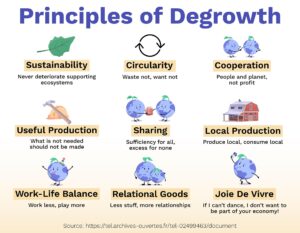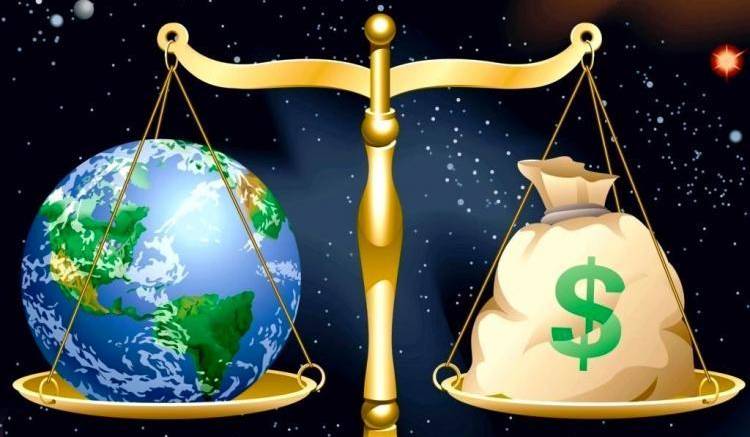Ever since the economic system tied itself to growth as the only means to achieve human happiness we’ve been at odds with the natural world – with Mother Earth and her steady state way of doing business, as if the earth WAS a business, which of course she isn’t. But Herman Daly noted that we are treating the earth as if she were a business in liquidation. What the solution or more accurately solutions, since it’s going to take multiple approaches to get us out of the downward spiral we’re currently on.
One proposal centres on what’s known as degrowth, which run contrary to the current system. A component of this may be the circular economic thinking which we have written about here before. In this piece: Degrowth critiques of the circular economy, Thomas Wiedmann (Australian Circular Economy Hub, March 6th, 2023) says that, “For a truly sustainable economic transformation, business, institutional and governance models need to change at company, country and global level.”
He writes: “Efforts to increase resource efficiency have in the past not led to the desired reduction. This is because gains in efficiency tend to lead to the paradox situation that they increase consumption. This has been true for more than 150 years and is known as Jeavons’ Paradox (Bauwens, 2021). CE principally fails in preventing or mitigating this rebound effect (Corvellec et al., 2022). For example, money saved on leasing, renting, sharing, or pooling a product is likely to be spent on other, potentially more environmentally damaging activities (Hofmann, 2019).” 
Wiedmann concludes that:
“Companies have demonstrated that value and wellbeing for both humans and nature can be generated with adequate business, ownership and governance models (such as the Patagonia example). This needs to be encouraged and supported by strong policies that prioritise environmental sustainability and societal wellbeing (Hofmann, 2022). Granting a “right to repair”, banning planned obsolescence, making producers responsible for product lifecycles, correctly pricing externalities, redirecting subsidies etc. are examples of policies that can and should have been implemented in the current system a long time ago.
But more is needed. Circular business models need to create value by truly slowing and reducing resource flows and curbing the throughput of materials in societies (Hofmann, 2019). CE has the potential to be disruptive, but only if it is combined with and operated within a transformative economic system. The idea of degrowth in wealthy nations is no longer an academic niche phantasy, it is set to become a serious contender of mainstream economic thought (Hickel et al., 2022).
There is an opportunity for all stakeholders – academics, practitioners and governments – to creatively test and develop economic models that are circular and operate within planetary boundaries. Most important of all will be cooperation to achieve a redistribution of knowledge and power (for example, through open source models) that enable a more equitable distribution of earnings and assets (Hofmann, 2019).”
Get the full article here.



